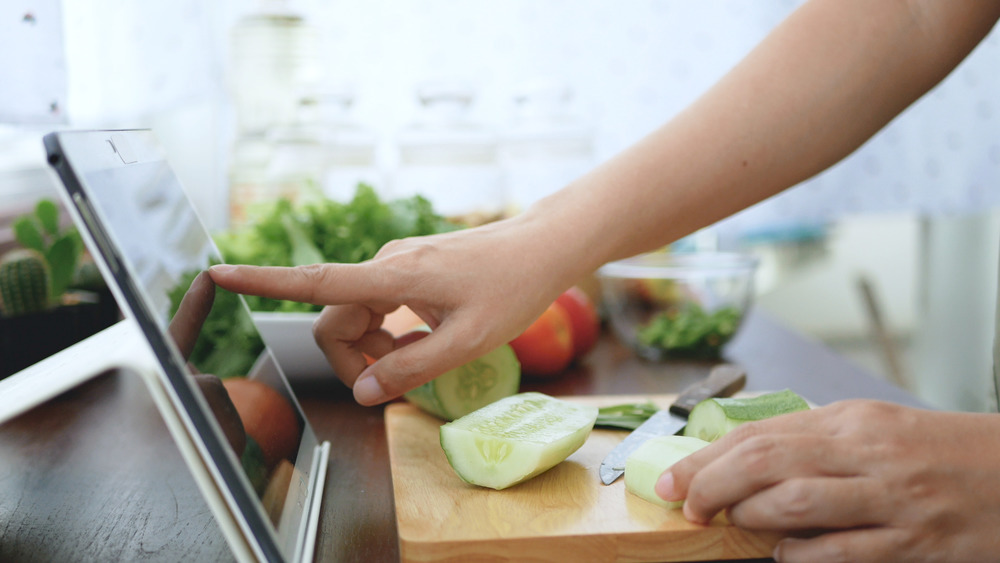You Should Think Twice Before Trusting The Google Star Rating For Recipes. Here's Why
When you search Google for a recipe, you'll notice star ratings right next to many results. Most Google results will feature certain recipes in a carousel at the top of the page with pictures and some additional information like key ingredients. What you may not realize is that the results being displayed to you first by Google are not necessarily based on any taste test, but instead on the setup and marketing of that particular recipe page.
Now, to be clear, a 1-star recipe is still probably a bad recipe. Google isn't sharing false data.
What we mean is that the 5-star recipe you are seeing may not be the best available. Meathead Goldwyn of AmazingRibs.com shares, "I think I was the canary in the coal mine — the first food writer to warn about" what he describes as the best-known recipes from his well-known barbecue site disappearing from the top search results (via Slate). According to Slate, sites supply the user-generated star ratings that Google utilizes. More stars usually mean more clicks. More clicks mean a higher search ranking. The result is that the recipe you see may reflect less about the "caliber of a recipe than they do about who published it," according to Slate.
After all, Google isn't taste-testing these dishes.
Computer algorithms don't know how to cook
Google works hard to get you the most relevant and high-quality web results, but the search engine itself doesn't have taste buds. Google can only judge on items like page popularity and traffic, presence of readable text, presence of images, and overall quality metrics of the page source (via Google Search Central, Smart Insights). Knowing people have left reviews is a definite plus, but while it's strictly against Google policy, reviews have been faked on more than one occasion (via Cognitive SEO). The result of these metrics is that sometimes a lower-quality recipe will rank above a higher-quality one. For example, Slate recently found that crowd-sourced All Recipes was averaging higher ratings than expert-created NYT Cooking and Bon Apétit.
To get a good idea of a recipe's quality, use Google's metrics that support usable and readable web pages, and combine these with a little sleuthing of your own. Long-term food writer, editor, and tester Elisa Bosley suggests you look for notes on the recipe (via Sunset). Search for text like "from the test kitchen" or "recipe tester" or "test kitchen professional" so that you know a real person has actually cooked and evaluated this recipe. Scan the page to make sure it has all the details you need to make sure this recipe is a specific fit for you and take notes of your results.
Don't avoid Google for recipe search, just know how to use it best.

